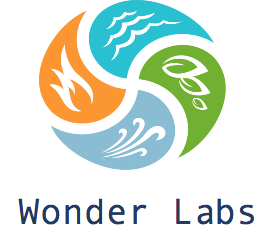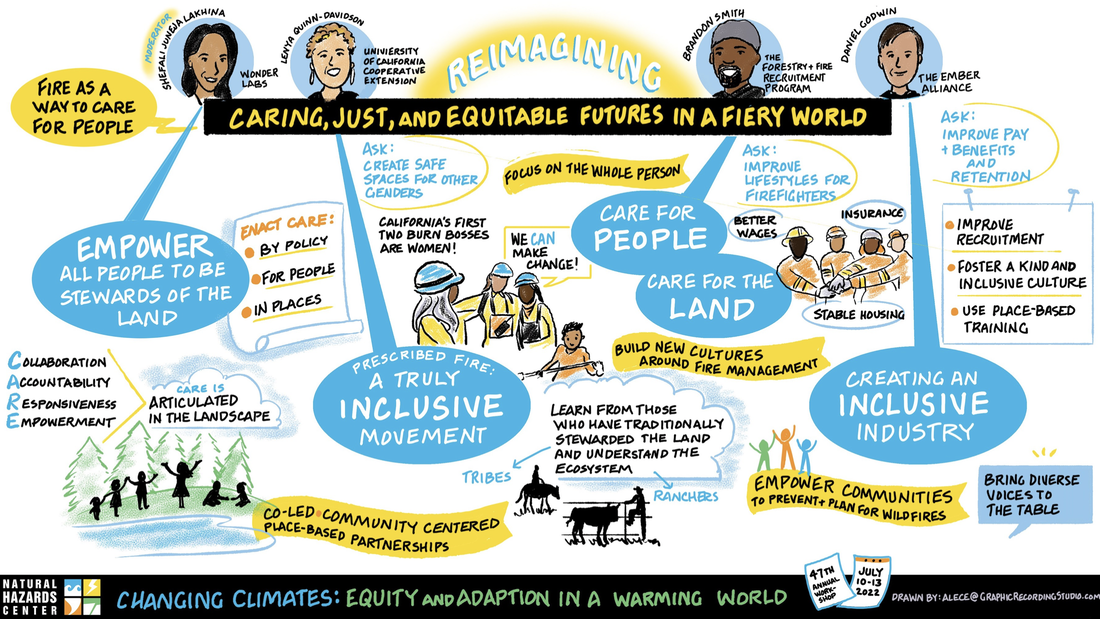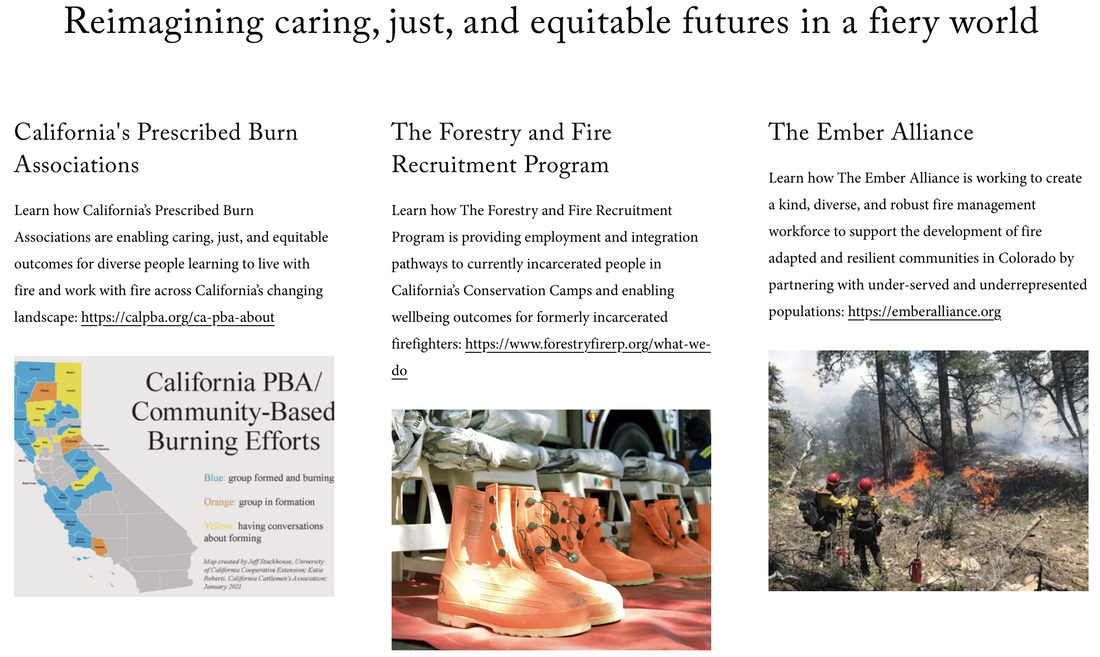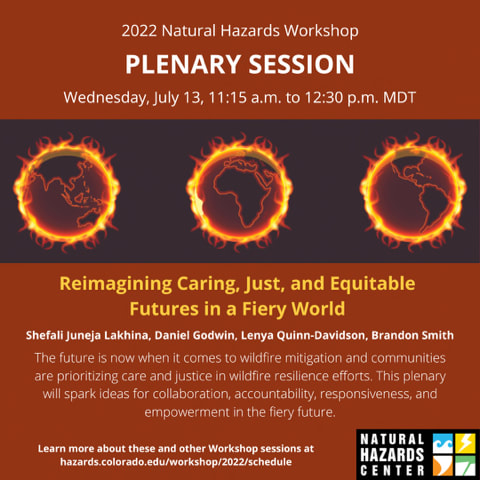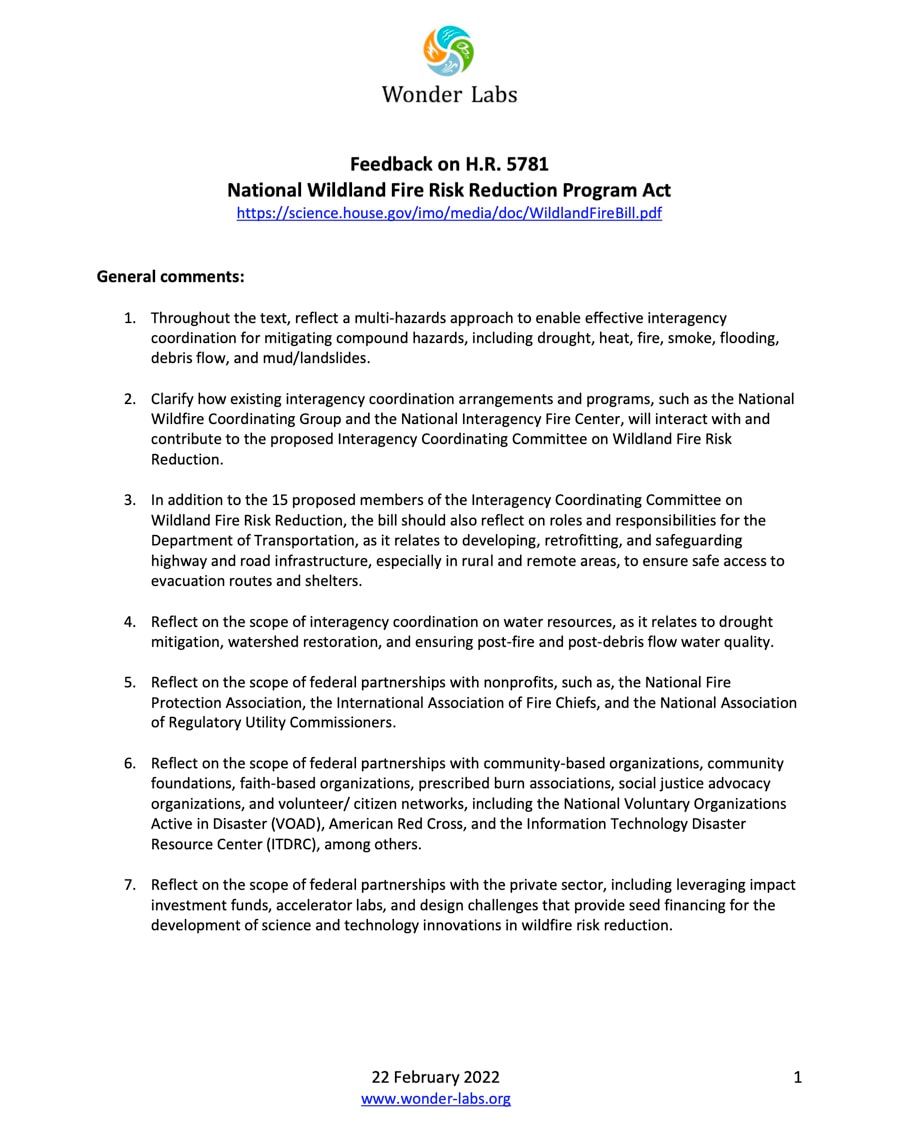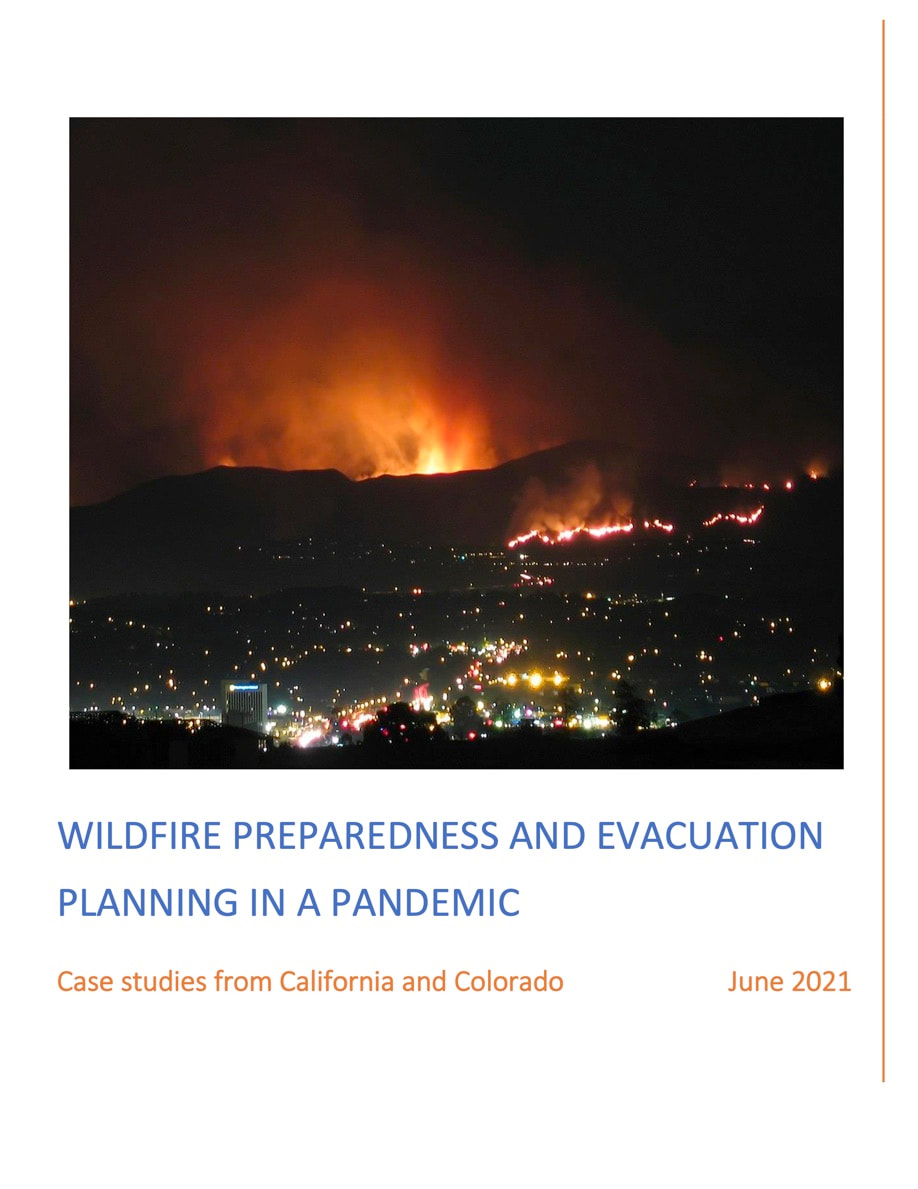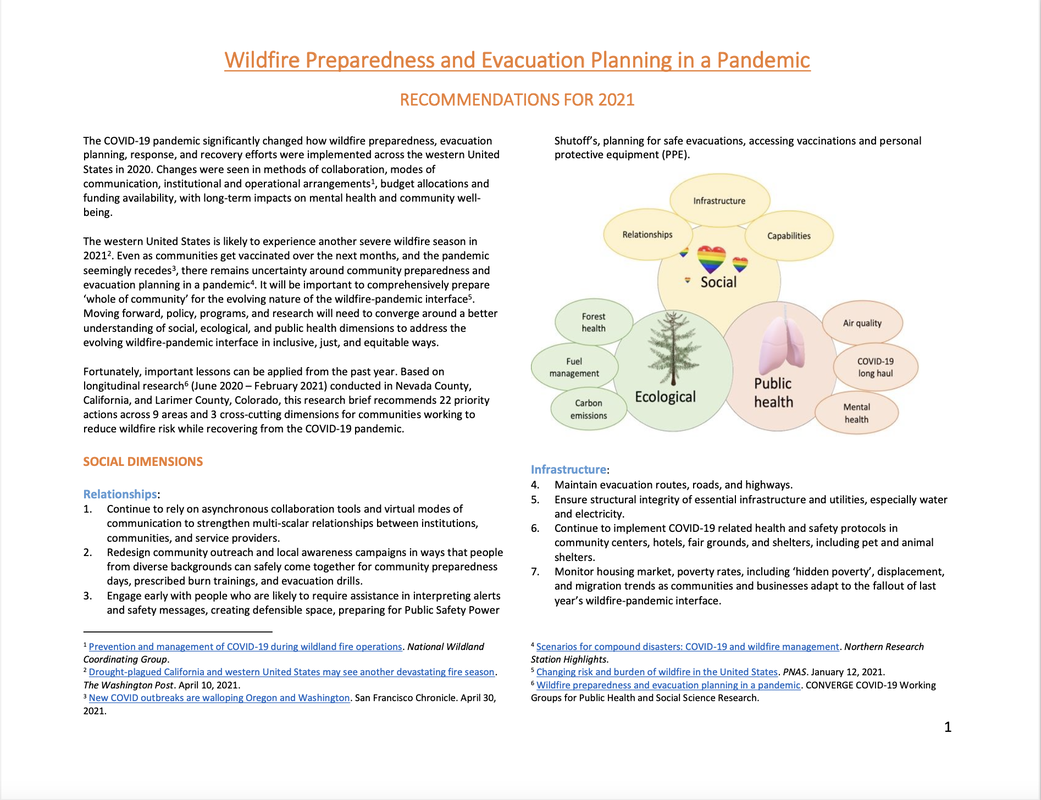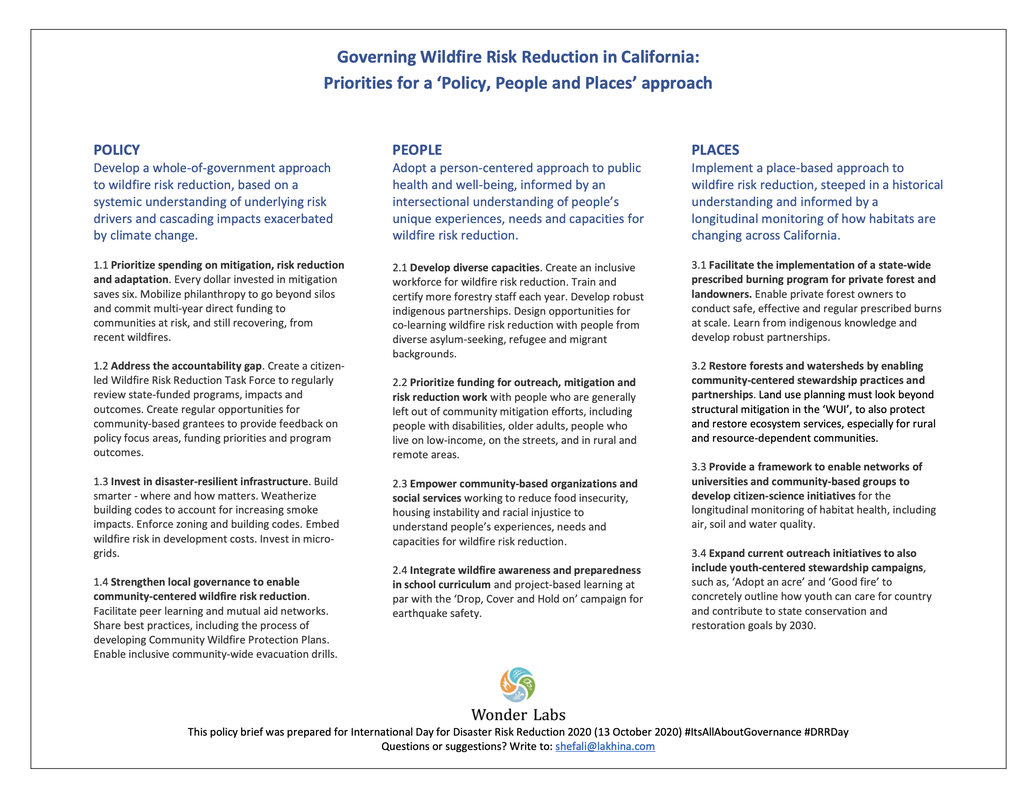|
Dear friends,
We close this year with deep gratitude and great optimism. Together, we’ve accomplished much this year. Thank you for walking with us. When we founded Wonder Labs in April 2020, we envisioned a near future in which communities can live and work with fire in sustainable, equitable, and just ways. To realize this vision, we launched the Reimagining 2025: Living with Fire Program and Design Challenge. We were motivated by the belief that diverse communities on the frontlines of climate impacts can be empowered to reimagine the futures we collectively want and need. Mid-point into our five-year reimagining journey, and with two Living with Fire Design Challenge cohorts under our belt, we now have tangible outcomes that confirm our vision is within reach. We need not wait for decades. In the current policy and funding environment, we are no longer constrained by a lack of capital, only a lack of imagination. Over the past two years, our student-led teams have conducted convergence research in partnership with regional, local, and grassroots organizations across California and Colorado. The teams have facilitated inclusive processes to reimagine how diverse communities can live, work, even thrive, in a fiery future. We step into 2023 determined to scale the reimagining methodology with a growing pipeline of powerhouse teams. We’re also excited to extend our Reimagining 2025 Living with Fire program to include a Reimagining Fire Podcast and begin work on a Reimagining Life and Work with Fire Atlas. This year, we also witnessed how responsible innovation and catalytic capital can be powerful scale multipliers. Our incubation, BurnBot Inc., raised $5m, graduated from our backyard, and is launching field operations in California and Oregon. Catalytic capital turbo charged BurnBot, and BurnBot in turn, will help scale fuel treatments. This is why we are proud partners to the Wildfire Tech Funders Group, the newly formed Wildfire Resilience Funders Network, and Convective Capital––the first FireTech venture fund. Talking about catalytic capital with many of you led to the first State of FireTech Report (look out for the State of FireTech 2023 Annual Update)! In 2022, we worked across academia, policy, philanthropy, venture capital, start-ups, the private sector, international organizations, community-based organizations, as well as Federal, State, Local and Tribal agencies. Together, we advanced policy, investment, research, and practice agendas. Building on our 2022-23 Living with Fire Design Challenge theme, we called for a new research and practice agenda to reimagine the forestry and fire workforce in caring, equitable, and just ways. The momentum we’re seeing emerge from these diverse and effective partnerships is electrifying! Thank you for inspiring us with your resolve, commitment, and impact. We look forward to advancing our collective mission in 2023. Our warmest wishes to you and yours, Shefali and Anukool Co-Founders, Wonder Labs
1 Comment
Graphic recording of the closing plenary, 'Reimagining caring, just, and equitable futures in a fiery world', of the 47th Natural Hazards Workshop, Natural Hazards Center, University of Colorado Boulder (2022).
H.R. 5781 aims to establish a National Wildland Fire Risk Reduction Program and an Interagency Coordinating Committee on Wildland Fire Risk Reduction to achieve major measurable reductions in the losses of life and property from wildland fires. In this document, Wonder Labs reflects on the scope and opportunities of this bill while also recommending further areas for consideration.
In 2020, the western United States experienced profound impacts from compound hazards. The COVID-19 pandemic significantly changed how wildfire preparedness, evacuation planning, response, and recovery efforts were implemented across the United States in 2020. As of June 2021, these changes continue to have far reaching but inadequately understood impacts on the social, ecological, and public health dimensions of life in the United States.
This report seeks to address knowledge gaps and enable institutions and communities across the western United States to adapt to the evolving wildfire-pandemic interface in 2021, and beyond. The report presents key findings, conclusions, and recommendations from a longitudinal research study on wildfire preparedness and evacuation planning in a pandemic. The research examined how communities in two locations at high risk from wildfires – Nevada County in California and Larimer County in Colorado – perceived and practiced safety as they prepared for wildfires (June – August 2020) and recovered from wildfires (November 2020 – February 2021) during the COVID-19 pandemic. The research findings emphasize the need to develop a convergent approach to address compound hazards. This will be especially important as communities in the western United States cope with extreme drought, high wildfire risk, poor air quality, and public safety power shutoffs, amid the long-term impacts of the COVID-19 pandemic, housing instability, food insecurity, and racial injustice. The report presents a conceptual framework to characterize the evolving wildfire-pandemic interface along three interrelated dimensions: social, ecological, and public health. It makes the case for why policy, programs, and research will need to converge around a better understanding of these dimensions to comprehensively address the evolving wildfire-pandemic interface in inclusive, just, and equitable ways. The report identifies key recommendations that can apply to locations across the western United States, and perhaps, globally. It is hoped these recommendations can guide the development of more collaborative, agile, and responsive strategies for wildfire risk reduction to enable social, ecological, and public health and well-being outcomes. Recommendations for 2021
The COVID-19 pandemic significantly changed how wildfire preparedness, evacuation planning, response, and recovery efforts were implemented across the western United States in 2020. The western United States is likely to experience another severe wildfire season in 2021. Even as communities get vaccinated over the next months, and the pandemic seemingly recedes, there remains uncertainty around community preparedness and evacuation planning in a pandemic. It will be important to comprehensively prepare ‘whole of community’ for the evolving nature of the wildfire-pandemic interface in inclusive, just, and equitable ways. Fortunately, important lessons can be applied from the past year. As we mark Wildfire Preparedness Day (May 1), here are some recommendations for the months ahead. Based on longitudinal research (June 2020 – February 2021) conducted in Nevada County, California, and Larimer County, Colorado, this research brief recommends 22 priority actions across 9 areas and 3 cross-cutting dimensions for communities working to reduce wildfire risk while recovering from the COVID-19 pandemic. Also look out for the complete report later this month! On this International Day for Disaster Risk Reduction #DRRday let's talk governance. Acknowledging the promising initiatives underway in California, here are some thoughts on implementing a ‘Policy, People, Places’ approach to wildfire governance. #ItsAllAboutGovernance
|
